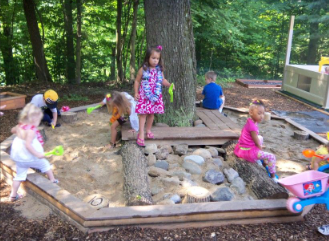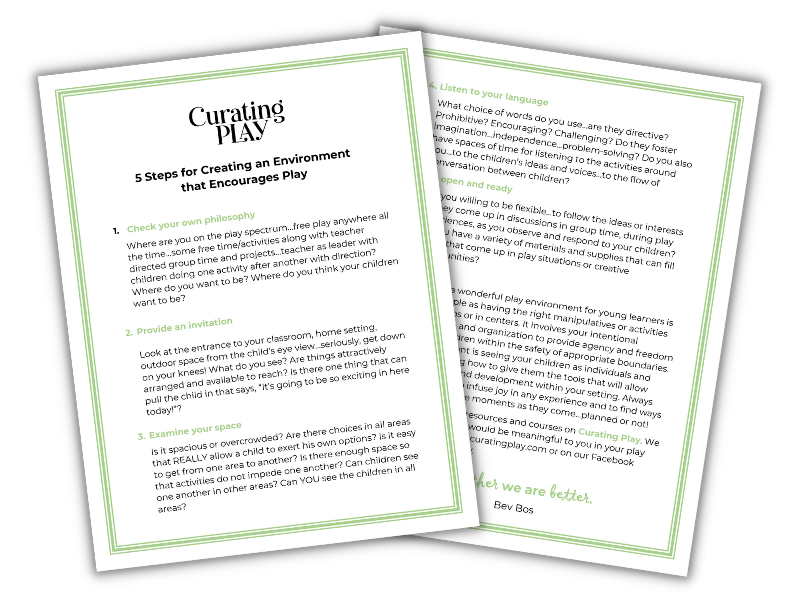This summer, why not help children build magical and memorable experiences by fostering outdoor nature play? Plants, trees, rocks, soil, water, and wildlife … some of the best toys are found outdoors!
Unlike structured activities, outdoor nature play is child-centered and offers children opportunities to explore natural environments such as parks, forests, beaches—even our own backyards offer countless ways for children to discover the natural world at their own pace.

The benefits of outdoor play are many, as evidenced by the multiple nature preschools (aka forest kindergartens) that have become increasingly popular across the globe. These early childhood programs emphasize outdoor learning in natural settings by prioritizing play, exploration, and hands-on experiences in nature as a means to foster a child’s physical, cognitive, and social-emotional development.
Outdoor nature play can take many forms, including: Exploration, imaginative play, physical activity, creative expression, sensory exploration, problem-solving, and social interaction. Encouraging outdoor nature play in young children involves creating an environment that supports and nurtures their curiosity and exploration.
Here are ten tips to help you promote outdoor play:
- Provide Accessible Outdoor Spaces. Ensure that children have easy access to safe and inviting outdoor environments where they can play freely. This could be a backyard, a local park, or a natural reserve.
- Lead by Example. Show enthusiasm for spending time outdoors and engaging in nature-based activities yourself! Children often mimic the behaviors of adults, so your own appreciation for nature can inspire them.
- Limit Screen Time. Set boundaries on screen time and encourage outdoor play as an alternative. Offer a variety of outdoor toys and equipment to keep them engaged, such as balls, bikes, sandboxes, or gardening tools.
- Foster Curiosity. Encourage children to explore their surroundings and ask questions about the natural world. Point out interesting plants, animals, and natural phenomena, and encourage them to investigate further.
- Organize Nature-Based Activities. Plan outdoor outings and activities that allow children to interact with nature directly, such as nature walks, scavenger hunts, bird watching, or gardening projects. Make these activities fun and interactive to keep them engaged.
- Create Nature Play Spaces. Designate a specific area in your backyard or community where children can engage in unstructured nature play. Provide natural materials like logs, rocks, and branches for building and imaginative play.
- Embrace Messiness. Allow children to get dirty and explore nature hands-on. Messy play is not only fun but also stimulates sensory development and creativity.
- Encourage Risk-Taking. Provide opportunities for children to take calculated risks and challenge themselves in outdoor settings. This could involve climbing trees, balancing on logs, or exploring uneven terrain. Supervise closely to ensure safety but allow children some freedom to test their limits!
- Celebrate Achievements. Praise children for their outdoor adventures and discoveries. Celebrate their curiosity, resilience, and problem-solving skills, reinforcing the idea that outdoor play is both enjoyable and rewarding.
- Involve the Entire Family. Make outdoor nature play a family affair by participating in activities together. Plan weekend hikes, picnics, or camping trips where everyone can bond and connect with nature.
By implementing these strategies, you can help instill a love for the outdoors in young children and foster a lifelong appreciation for the natural world.
And don’t forget the numerous benefits outdoor nature play provides for children’s physical, mental, and emotional well-being. From strengthening muscles and bones to reducing stress and improving concentration, time spent in nature offers a holistic approach to child development by promoting physical health, mental well-being, emotional resilience, and a lifelong connection to the natural world.
So get outside and play!




